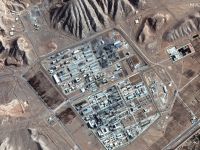US President Bill Clinton acknowledged Tuesday that his bid to end the Israeli-Palestinian conflict ended in failure but insisted the parties had achieved progress in their two-week summit at Camp David.
"I have concluded with regret that they will not be able to reach an agreement," Clinton told reporters at the White House shortly US officials announced that Israeli Prime Minister Ehud Barak and Palestinian President Yasser Arafat had been unable to bridge their differences.
The president confirmed that the future status of east Jerusalem, on which the parties could not agree on sovereignty, proved to be the most "difficult problem."
Despite the breakdown, however, "we made progress on all the core issues, we made really significant progress on many of them," Clinton said.
He praised Barak for moving the Israeli position forward on Jerusalem and appealed to both parties to continue their search for compromise.
"Prime Minister Barak showed particular courage, vision and an understanding of the historical importance of this moment," Clinton said.
"Chairman Arafat made it clear that he, too, remains committed to the path of peace."
In a trilateral statement, the parties pledged to continue working toward a peace agreement and said they agreed on "the importance of avoiding unilateral actions that prejudge the outcome of the negotiations and that their differences will be resolved only by good faith negotiations."
"Now the two parties must go home and reflect both on what happened at Camp David and on what did not happen," Clinton said.
"For the sake of their children, they must rededicate themselves to the path of peace and find a way to resume their negotiations in the next few weeks," he said, adding that the United States would continue to support the search for peace.
Barak wasted no time in blaming Arafat for the failure of the Camp David summit, saying his stance on Jerusalem caused the talks to collapse.
"Arafat's position on Jerusalem prevented an agreement," Barak said.
"Arafat was afraid to make historical decisions to put an end to the conflict," Barak told reporters following the end of the summit at the presidential retreat.
Colette Avital, an Israeli Labor Party member of parliament, said earlier, "We went the extra mile and made far reaching concessions, but Arafat rejected them."
Hassan Abdel-Rahman, Palestine Liberation Organization representative in Washington, insisted that summit flopped because of "the intransigence of Barak on all the issues, mainly Jerusalem, and his refusal to recognize Palestinian sovereignty over occupied east Jerusalem in violation of international resolutions and American letters of guarantees to the Palestinians."
"I hope that the Israeli position will change and that efforts will move forward to resume the negotiations," he said.
Barak's spokesman, Gadi Baltianski, earlier said that a US official would travel to the Middle East in the "coming weeks to see how to proceed."
Barak and Arafat had been holed up at the US presidential retreat at Camp David in the Maryland mountains west of Washington since July 11, struggling to overcome divisions that have plagued their people for more than half a century.
They came to Camp David under a bold initiative by Clinton, anxious to secure a diplomatic triumph before leaving office in January. But despite the president's intensive involvement in the process, there had been no visible evidence of any headway over the past two weeks.
Israel captured east Jerusalem in the 1967 Middle East war and later declared the entire city to be their eternal and undivided capital, a position no recognized internationally.
The Palestinians are demanding sovereignty over east Jerusalem , where they want to establish the capital of their independent state.
Israeli sources said that in the course of the negotiations Barak had accepted an unofficial US proposal calling a degree of joint sovereignty over the eastern sector, home to the some of the most revered sites in Islam, Christianity and Judaism.
But in public statements from the Middle East, Palestinian officials and commentators insisted on full sovereignty, with Arafat himself quoted as saying the Arab had not been born who would compromise on Jerusalem.
The summit was also to have addressed other issues, notably the borders of any future Palestinian state, Israeli settlements on the West Bank and Gaza and the fate of Palestinian refugees who left Israel following the establishment of the Jewish state in 1948 – Thurmont, Maryland – (AFP)
© 2000 Al Bawaba (www.albawaba.com)







